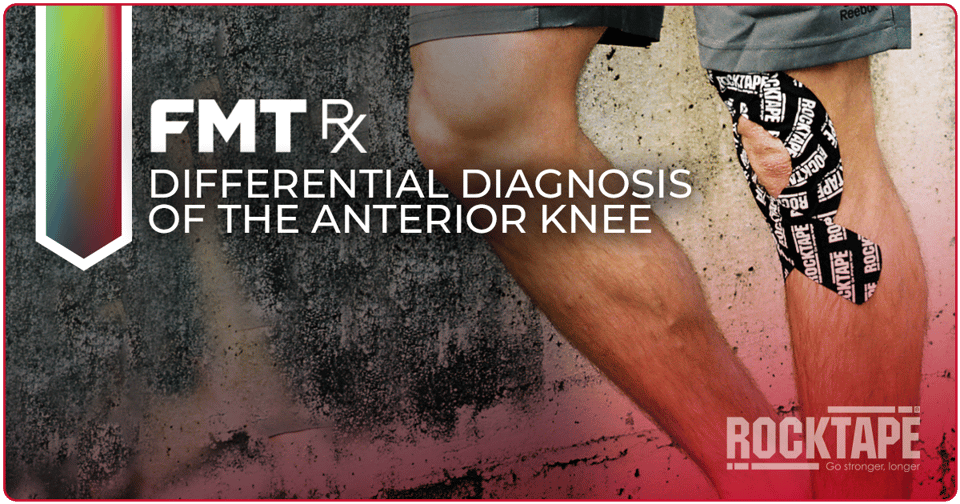FMT Rx: Differential Diagnosis of the Anterior Knee
by Dr. Meghan Helwig
Includes all course content in digital format

Description
This course introduces the learner to an overview of differential diagnosis and intervention concepts related to the anterior knee region of the human body. It includes a review of current literature supporting the theories that describe and delineate specific concepts related to differential diagnosis of this body region. Interventional techniques to enhance rehabilitation or performance outcomes will be discussed and demonstrated. Evidence based chapters in this course include topics of tissue healing, injury management, differential diagnosis, interventional technique, treatment theory and practical lab experiences in areas such as applying kinesiology tape, use of myofascial cups, and using banded mobilizations.
FMT RX: Anterior Knee is an evidence-informed differential diagnosis course that advances students’ understanding of factors to consider when working with patients or clients with knee region injuries. FMT Rx Anterior Knee methodically examines the research-influenced content basis for a deeper understanding of management of this area of injury.
This course is intended for health and fitness professionals with all levels of experience.
Learning Objectives
Course Procedure
- Enroll in the course.
- View the course content.
- Take the test. (You must score 80% to pass. If you do not pass, you may retake the test.)
- Print your certificate of completion.
Course Content
| FMT Rx: Anterior Knee | Module |
Hour 1:
- Review of Anatomy and Physiology
- Anterior Knee Anatomy
- Anterior Knee Biomechanics
- Proximal and Distal Influences
- Anterior Knee Function
- Area of Stability AND Mobility
- Differential Diagnosis of the Anterior Hip Region
- Quadriceps Weakness/Poor Motor Control
- PFPS/Chondromalacia
- Biomechanical Issues
- Function and Dysfunction of the Knee Region
- Identifying the Issues
- Acute Sprains vs Chronic Problems
- Historical Treatment of Anterior Knee Pain
- RICE
- Functional Knee Bracing
- Cortisone Injections
Hour 2:
- Research Review
- Analysis of Current Research Related to this Region
- Treatment Considerations Today
- Kinesiology Tape Intervention
- Neurosensory Awareness
- Mechanical Cueing
- Patellar Tracking/Offload
- Compressional Floss Band Activities
- Myofascial Cupping
- Looped Exercise Band Interventions
- Stages of Care for Anterior Knee Pain
- Acute Management
- Sub-acute Management
- Chronic Management
- What’s Next
- Review of Learning Objectives
Dr. Meghan Helwig

Dr. Meghan Helwig graduated with her Doctorate in Physical Therapy from Rutgers University. A native of Morris County, NJ, Dr. Helwig earned a finance degree from Villanova University where she was the starting goalie for 4 years for the Div. I Big East Field Hockey Team.
An athlete her entire life Dr. Helwig has a competitive mindset and understands the demands sport and life place on the body. She has numerous “tools in her toolbox” and has combined concepts and techniques such as ART, SFMA, NKT, DNS, TPI, Rocktape IASTM/Blades, Kinesiology Taping, and cupping to create her own unique system for assessment and intervention. She utilizes these tools and techniques to assess and treat her patients as a whole while uncovering the underlying “WHY” behind her patients' symptoms.